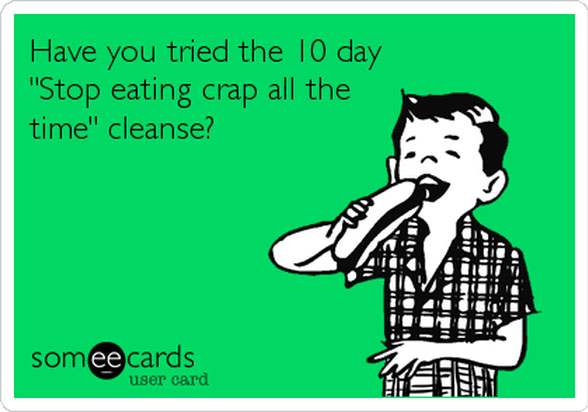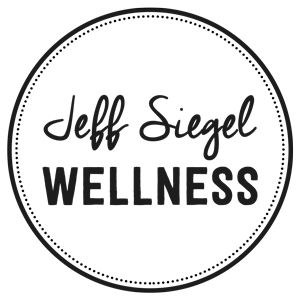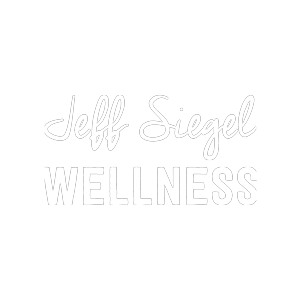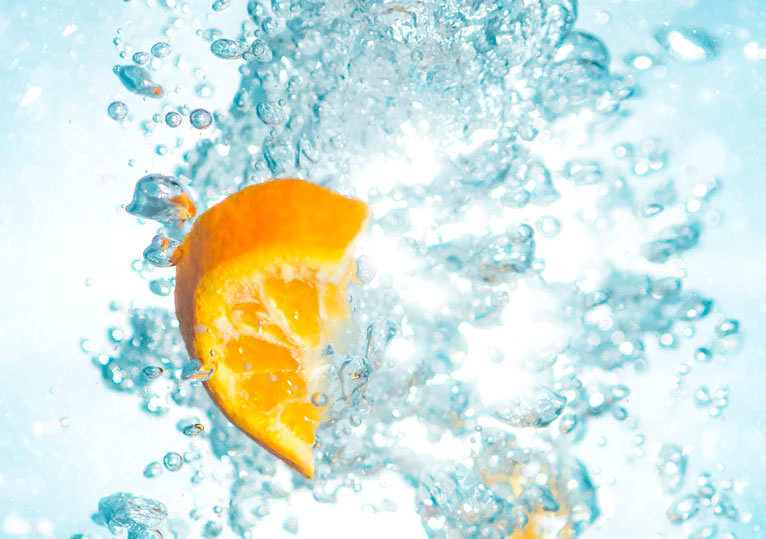Every day I see ads for a “New Miracle Cleanse”. What’s more? Actress Gwyneth Paltrow is a fan. After completing a 21-day cleanse, she wrote that it “worked wonders.” Are you convinced?

I’m sure you probably know a bunch of people who have or are actively doing a cleanse. In fact, the other weekend, I had made plans to meet up with a friend for brunch. Later in the week she told me she was doing a cleanse and couldn’t/wouldn’t eat brunch, so we changed plans to meet for tea instead. I didn’t mind shifting plans to accommodate her decision to detox. After all, we all only get one body, so we better treat it right.
Yet when we actually met up for tea, she ended up ordering a bagel and cream cheese, informing me that she stopped her cleanse because it wasn’t working.
When I asked how she knew if it were working, she said she didn’t really know. She thought it just didn’t do much.
At this point I held my tongue, but I thought to myself, how do you know if a cleanse is working if
a) you’ve only been doing it 3 days, and
b) you don’t know what you’re trying to achieve with cleansing in the first place?
Two things came to mind:
- Any restrictive diet is not sustainable long term.
- Doing something because it “seems” healthy without know WHY you’re doing it is a recipe for failure.
To the first point, cleanses are short-term detox solutions. Generally speaking, they’re not much fun. (Fail on principle #1 of JES Wellness—JOY). If it’s not something you’d want to be doing for the rest of your days, you better learn or gain something from the process.
If you want to try a radical detox for a few days, do it and pay close attention to how it affects you. Ironically, people may feel worse during a cleanse because the toxins stored in the body are now being released in your system in order to be eliminated. These can create symptoms like headache or fatigue, which are only exacerbated by the drastic elimination of foods our bodies have become accustomed to.
Food is about nourishment. If your diet is giving you any symptoms other than feeling buoyant, energetic and vital, are you really doing something good for your body? If you plan on eating one meal a day of lemon juice and maple syrup for the rest of the month, I would be really interested in hearing how that works for you.
A question I regularly like to ask myself is, “If I really loved myself, would I do this?” This can be applied to any behavior, not just food. I recommend asking it as often as necessary.
To the second point, why bother detoxing at all?
Some people detox to lose weight, others to heal and purify their system, and still others to make up for a week of unhealthy eating and drinking. Whether you live a healthy lifestyle or not (and keep in mind everyone has a different definition of health), the theory behind cleanses is that we are exposed to environmental toxins on a daily basis that build up in our body and make us sick, fat and tired. To rebalance our systems from chronic exposure to a toxic world, we must cleanse our bodies through specific food and drinks that give our cells a chance to heal.
While different cleanses vary in what they put into our body, they all share in common one thing: what they cut out–fake food.
Specifically, cleanses cut out a lot of low-quality foods. This is their biggest benefit. Period.
More importantly, they make cutting out crappy food really easy to follow. There’s no thought process involved. You just commit to an ‘Eat this, not this’ approach for a period of time and you’re done. This is just easier than dealing with controling portion sizes, counting calories, and reading food ingredients.
After all, the best diet is the one you’ll do. So making it simple to follow is better than a complex approach that you’re not going to stick with.
Lots of people use cleanses to jump-start a body transformation program or push beyond a weight-loss plateau. For the most part, this is accomplished by cutting out a lot excess calories from people’s diet. This highly restrictive approach also tends to limit food sensitivities since common foods such as wheat, soy, dairy, eggs and so forth are typically not present. Again, both of these factors are generally good, but the approach is flawed as I discuss later.
Finally, most cleanses, especially raw food ones, also eliminate the consumption of chemical additives and carcinogenic compounds found in lots of foods (especially those cooked at high temperatures, e.g. high-temp frying and charred meats). Although these compounds like HCAs and AGEs might not have an acute impact on your health, long-term they can certainly burden the body, damage cells and lead to illness.
In total, when on a cleanse calories go down, food sensitivities are removed and harmful byproducts of cooking and packaging are minimized. This all sounds good, right? For the most part, yes.
But with the thousands of different cleanse products on the market, there’s very little testing of safety or efficacy. Is a Master Cleanse better than a Raw Food Diet or an Acai Berry Cleanse? It is hard to say since there are almost no scientific studies of these programs on people’s health.
Moreover, how do you know which is best for your unique body, metabolism and lifestyle. What helped your girlfriend may not be best for you. Taking one-sized fits all detox approach doesn’t allow you to learn about how specific foods impact your health. It may “work wonders” but it keeps you wondering what actually made you feel better.
All the while, you’re probably forking over hundreds of dollars for some concoction of fruit juices you could probably buy and juice yourself? This not only makes little sense financially, but it prevents you from taking health into your own hands.
Moreover, these detox diets can be very restrictive, not only making them unsustainable, but potentially harmful if a person is already in a compromised state. For instance, dramatically reducing calories for more than a few days will negatively impact your energy levels, which is detrimental to athletes and active people. Other issues include developing micronutrient deficiencies that might actually hamper health. And to reference a recent article: “Juice Cleanses: The new eating disorder” the black-and-white restrictive nature of these programs can definitely perpetuate disordered eating habits in some people.
Considering these drawbacks, what are some safe alternatives?
Firstly, if you’re going to cleanse, consider whether your lifestyle is going to support your efforts to recover and reboot. I’d cleanse during a natural break in your schedule. I’d also take time off from intense exercise since the increased metabolic demands from high-intensity training requires a plethora of nutrients which may be lacking when you’re doing a low-calorie detox.
That being said, I wouldn’t cut out all movement. Yoga, walking and other restorative work can activate the lymphatic system that aids the detox process. The crucial thing is to manage stress, whether physical or emotional, since we want to provide the conditions for healing while rebooting your body’s restorative system. Plus, drastic changes in diet could affect your mood. The last thing you’d want is to have the cleanse lead to hangry mood swings at work or home.
The second important component of a good cleanse is to provide essential nutrients to sop-up the excreted toxins and balance the body at the cellular level. This means supporting gastrointestinal function by maintaining healthy gut flora through probiotics and fermented foods. Also getting adequate dietary fiber by consuming lots of fruits and veggies will help clean the bowels.
To ensure your cells are functioning effectively, most cleanses support the body with compounds like glutathione, a master antioxidant that minimizes oxidative stress. Generally, boosting antioxidants is beneficial for health, especially if your body is releasing lots of toxins. However, there is some evidence to too many antioxidant supplements can be counterproductive, and the scientific evidence on the effectiveness of oral glutathione supplementation is ambiguous at best.
What’s a better approach? — Don’t cleanse, experiment!
I recommend that you think about what you can learn from changing your diet. See a detox like an experiment. As I said before, if full and radiant health is truly what you are after, seek to identify the foods or types of food that support you at your best. This means cutting out a food group for two weeks and keeping all else the same. Only by isolating one variable can you learn whether it has an effect on your health. Approaching dietary changes this way not only makes more sense over the long-term, it puts power back into your own hands to decide what is or is not supporting your wellbeing.
In addition to mini-elimination experiments, remember the primary focus of a detox is to remove the number of toxins going into your body. Perhaps the same elimination of toxins could be achieved by a simple 24hr hour fast opposed to an expensive detox product with fancy packaging and celebrity endorsements.
Small, periodic fasts give the digestive system a rest by decreasing the amount of food it needs to process. Hey, we all need some time off, especially if we’ve been bombarded with stressful stuff day-in-day-out. The digestive system is no different. If there’s a secret ingredient to any cleanse, I think it is this—rest.
Lastly, we are all exposed to lots of toxins on a daily basis. While most of these enter our body through the food we eat, we must not forget that a dietary cleanse does not address things such as eletromagnetic radiation, air pollution, chemicals in the water supply, compounds in household detergents, cleaners, cosmetic products, and many other sources of potentially harmful stressors. If total health is our goal, then a cleanse must also clean out these other environmental toxins. Think about how to cleanse not only from the inside out but also from the outside in.
Finally, we must also question the premise of a cleanse in the first place: that we are all somehow sick without even knowing. While I do think we all could use come cellular cleaning, we need to break out of the spell of presuming sickness. We don’t need endless experts and detox programs that tell us we are broken, sick or ugly. What we do need is to identify variables in our diet that affect us, modify our exposure to these substances, and support basic cellular function and immune response through healthy lifestyles choices on a regular basis.
No cleanse can provide you that. Only you can decide whether you want to find out what toxins are causing issues and develop the tools to heal yourself. This joyful and sustainable approach is a life-long journey of paying attention to how different combinations of food, mood, and movement support your evolution into greater health and happiness. If you’d like more support in your journey, feel free to sign-up for a constultation and we can begin this process.
I’m Jeff Siegel, a wellness coach and mindfulness teacher, helping people upgrade their habits and improve their health. For free bi-monthly wisdom on how to eat, move, and be healthier, sign-up for my newsletter. If you’d like to explore working together, you can schedule a private 30-min consultation call with me.


